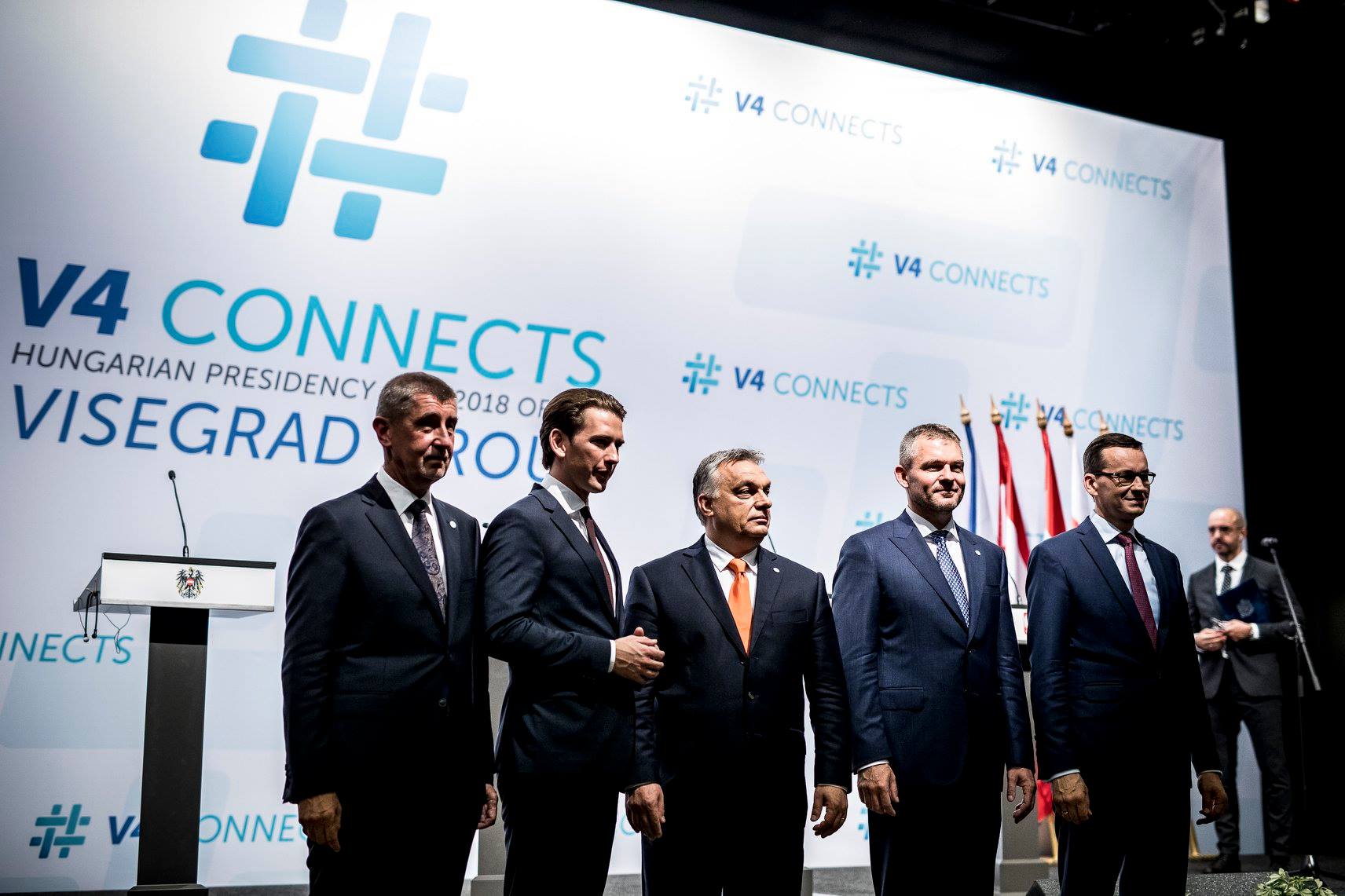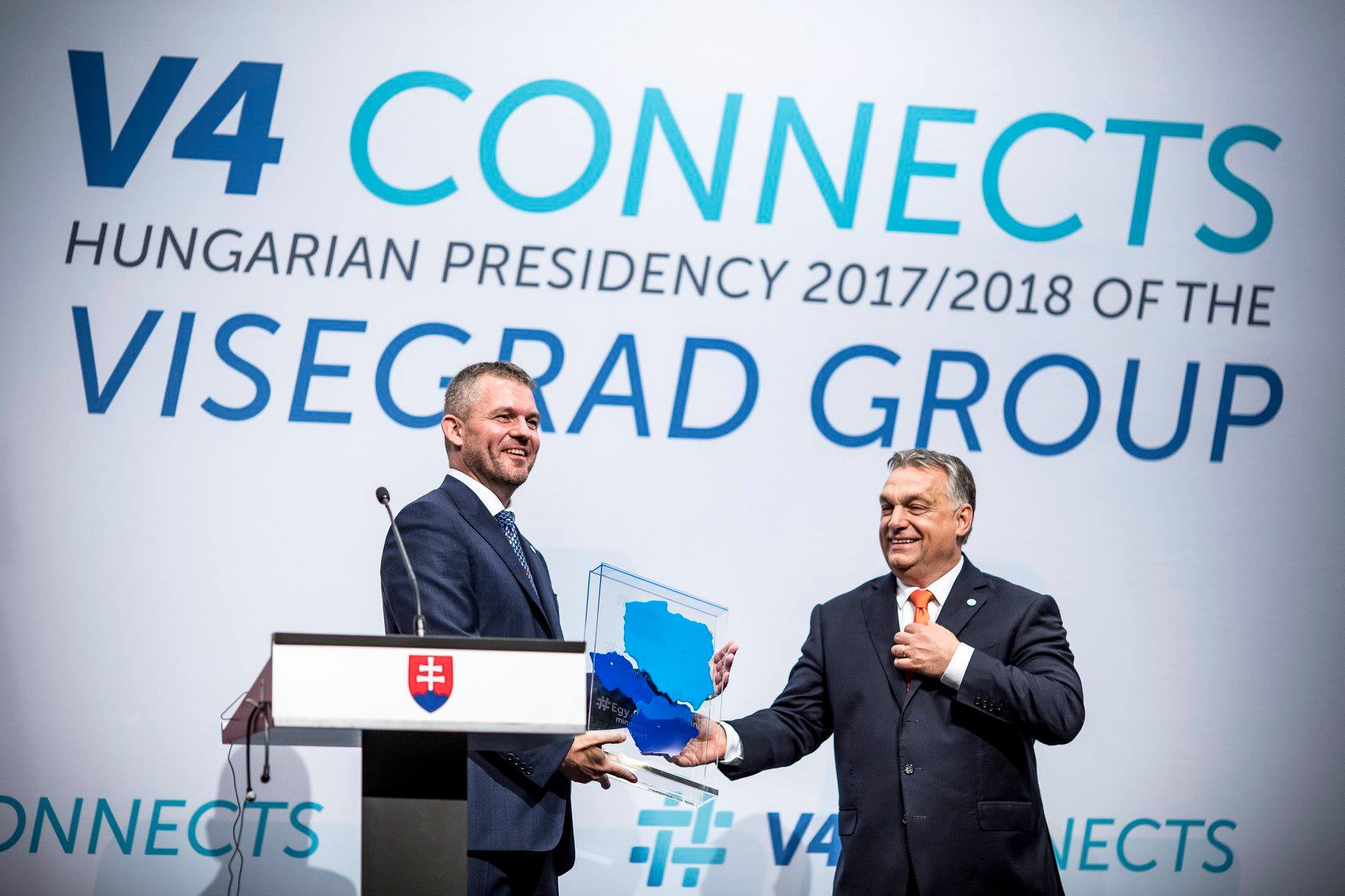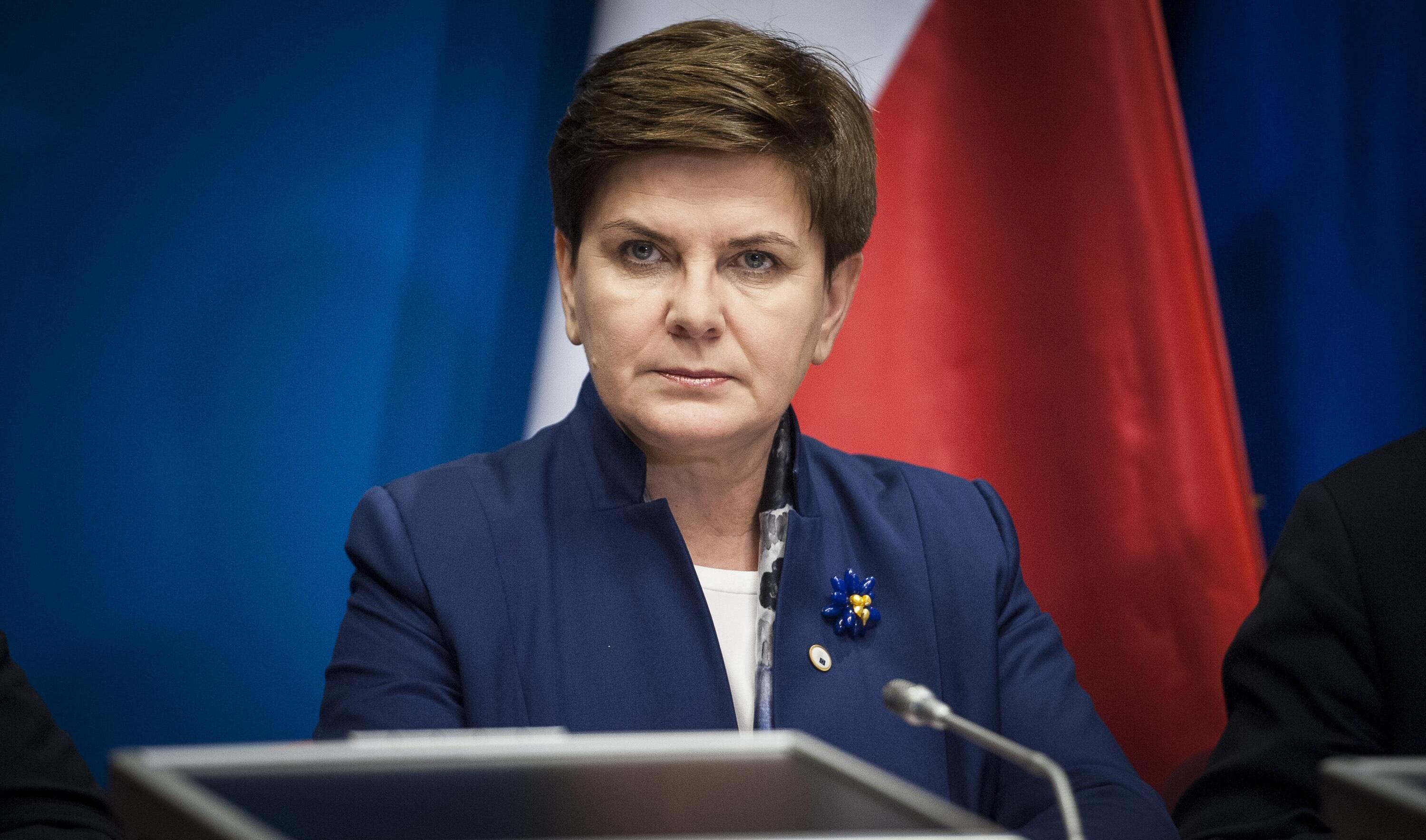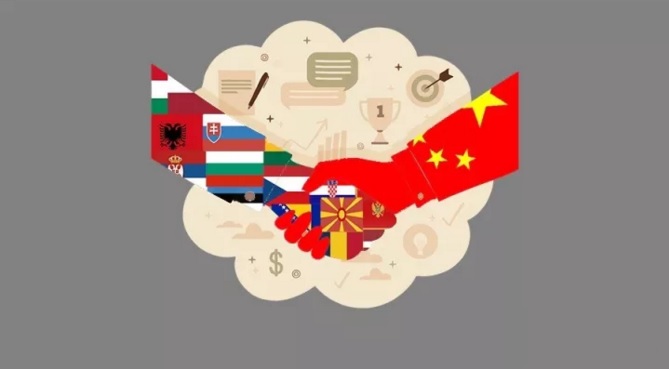The Visegrád Group and Austria met in Budapest for a summit on immigration therefore bypassing and declaring their boycott of the planned “mini-summit” on the subject.
Hungary – On Thursday, 21 June, Budapest hosted a summit of the Visegrád Group (Poland, Czechia, Slovakia, Hungary) and Austria. Heads of Government of the five countries met at the invitation of Prime Minister Viktor Orbán to discuss immigration.
Austria was invited to this summit in particular because it will take the lead of the Council of the European Union in the second half of 2018. Following the announcement of the establishment of an anti-immigration Axis to the initiative of the Interior Ministers of Austria (Herbert Kickl, FPÖ), Italy (Matteo Salvini, League) and Germany (Horst Seehofer, CSU), the invitation of the young Austrian Chancellor to Budapest takes on an extra dimension. The cooperation and the sudden alignment of Italy, Austria and, perhaps, Germany, on the migration policy of the Visegrád group would certainly be a shift in the treatment of immigration in Europe.
Which explains the V4’s attitude towards Brussels: the leaders of the Visegrád Group have announced that they will not participate in the informal “mini-summit” on immigration that will be held on Sunday, June 24, at the initiative of the European Commission. For the leaders of the V4, their interlocutor must remain Donald Tusk, President of the European Council. The latter is visiting Budapest this Friday, June 22, to discuss with Viktor Orbán, in preparation for the summit of Thursday, June 28 to come.
This rejection of the Commission’s “mini-summit” sounds like another blow in the battle between the Commission and the Visegrád Group. “The European Union is a complex system of institutions, and precipitation leads to chaos,” said Viktor Orbán to justify rejection of the Commission’s invitation. “It’s not up to the Commission to hold a summit of heads of government,” he insisted.

Visegrád Group reaches out to Austria
For Viktor Orbán, it is important that at the European level, there’d be a focus on topics that are or can be unanimous, putting aside those of discord. Thus, the Hungarian Prime Minister underlines the need for the Union to focus on the protection of the external borders and the establishment of refugee camps outside the EU.
Viktor Orbán recalled that Hungary and the Visegrád Group were counting heavily on the success of the Austrian Presidency of the Council of the European Union, in order to bring a “stronger, fairer and safer European Union”.
According to the Hungarian Prime Minister, the V4-Austria summit also debated issues of disagreement – such as the issue of nuclear energy – but highlighted how the debate took place. “This has reinforced my certainty: Central Europe is not just a part of the Union. Considering its culture, the professionalism and the courage of its leaders, I am convinced that our region strengthens the EU. We are ready for the rise of Central Europe, and this will be done through the Slovak Presidency of the V4 and the Austrian Presidency of the Council of the European Union,” said Viktor Orbán.
The Polish, Czech and Slovak Prime Ministers also stressed the expectation that they have towards Austria regarding the EU budget for the next cycle.
Austria on the wavelength of Visegrád
During the joint press conference, the five heads of government spoke in a similar way about immigration. If Viktor Orbán could speak on behalf of the Visegrád group, whose presidency he managed until the end of the meeting, that the V4 is in unison on the migration issue, the Austrian Chancellor Sebastian Kurz made clear his understanding and alignment on the subject.
In his address, Sebastian Kurz stated that Austria’s priority during its rotating presidency of the Council of the European Union will be security, the increase of the welbeing of European citizens and fixing cooperation between the state members. “We do not want the redistribution of migrants to be at the heart of the debate, but instead we’d like to focus on the common protection of the external borders,” said Sebastian Kurz, echoing the three-year-old Visegrád Group project,, recalling that Europe without internal borders can only be guaranteed by protecting external borders. The Austrian Chancellor stressed wanting a Europe that protects its citizens, saying that it will go through the fight against illegal immigration. He would like to strengthen the European agency Frontex in order to prevent smugglers’ boats from leaving the coasts, notably by collaborating with the authorities of third countries, so that Frontex can intervene in their territorial waters.
The Austrian Chancellor also indirectly recalled his support for the Visegrád countries in their opposition to Brussels. For Sebastian Kurz, who hopes to improve cooperation between European nations, it is important not to have different categories of member states.
Another important point, the Austrian Chancellor said to agree also with the V4 on EU enlargement to the Western Balkans.

At the end of the meeting, Hungarian Prime Minister Viktor Orbán handed over the presidency of the Visegrád Group to his Slovak counterpart Peter Pellegrini. As of 1 July 2018, Slovakia will assume the rotating presidency of the V4 for one year. Slovakia announced the three pillars of its presidency: a strong Europe, a safe environment and smart solutions. Slovakia will face during its presidency some delicate events: European elections and vote of the European budget. “The views of the V4 have not always pleased some of its European partners, and that will be the case again in the future,” said Peter Pellegrini.




